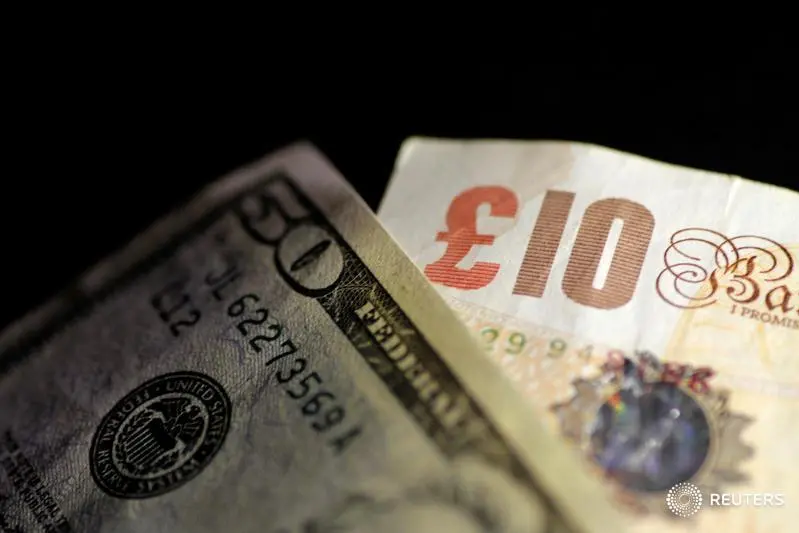PHOTO
Sterling dipped against a firming dollar on Tuesday as survey data confirmed a slowdown in factory activity in September, but the British currency was still in sight of recent highs.
The pound was down 0.4% at $1.33280 a day after closing out its strongest quarter in two years alongside a broader improvement in risk appetite. It hit a more than two-year high against the greenback just last week.
But the dollar was firmer across the board on Tuesday, after Federal Reserve Chair Jerome Powell pushed back against bets on more supersized interest rate cuts.
The centrepiece of this week for markets is the U.S. jobs due on Friday, which will offer clues about the health of the world's biggest economy and the trajectory of Fed policy.
In the mix in Britain, the S&P Global UK Manufacturing Purchasing Managers' Index slipped to 51.5 in September, unchanged from a preliminary estimate, as British manufacturers worried about the new government's first budget.
Sterling was flat against the euro, at 83.26 pence to the common currency, a day after firming to its strongest since April 2022.
Weighing on the euro were rising expectations of European Central Bank policy easing in October on top of an already-priced December cut, after soft inflation prints and data showing manufacturing activity across the euro zone declined at its fastest pace this year in September.
In contrast, stubborn British inflation has fuelled bets of slower monetary policy easing in the United Kingdom. The Bank of England is widely expected to lower interest rates by 25 basis points next month, but only one rate cut is fully priced in between now and the end of the year.
"The pound is taking a little bit of backseat this week and riding the wave of external catalysts elsewhere," said Michael Brown, senior research strategist at Pepperstone.
In the medium term, investors are looking to the Oct. 30 budget when new finance minister Rachel Reeves will publish her first tax and spending plans.
"The big risk to the pound at the moment is the budget goes too far and that chokes off the (economic) recovery and then you see cable make a relatively rapid decline from the two and a half year high where we currently trade," said Brown.
Cable is market jargon for the pound traded against the dollar.
(Reporting by Medha Singh, Editing by William Maclean)





















